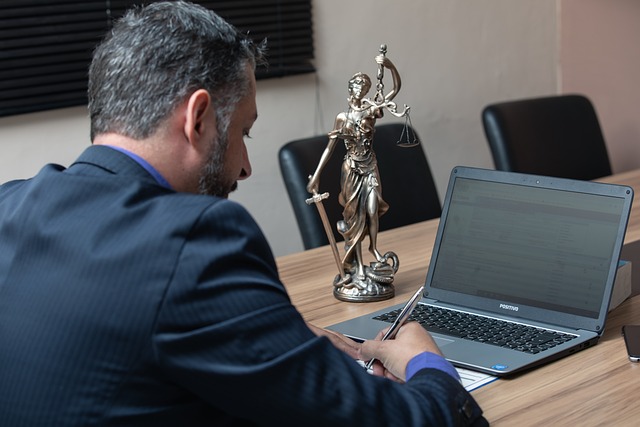Navigating healthcare law is akin to traversing a complex labyrinth, crucial for managing patient care, insurance, and medical ethics. Healthcare law firms act as guides, ensuring compliance with regulations and advocating for rights. When facing wrongful convictions, these firms employ strategic legal steps through meticulous evidence gathering, expert witness analysis, and robust documentation to overturn decisions, protecting both patients and healthcare providers. Understanding the process involves reviewing transcripts, collecting new evidence, consulting attorneys, and preparing memoranda for appellate court arguments. Key to success is a combination of scientific analysis, thorough investigations, and leveraging expert witnesses to expose discrepancies in medical records, ultimately securing justice. Proactive steps to overturn a wrongful conviction include retaining specialized legal counsel, gathering comprehensive evidence, and presenting well-structured arguments.
In the complex landscape of healthcare, navigating legal challenges can be a daunting task. This article guides you through the intricate world of healthcare law firms and their specialized services. We explore crucial aspects like understanding unique legal hurdles, appealing convictions, and gathering evidence effectively.
Learn strategic approaches to success, including the significance of expert witnesses and medical records. Discover essential steps to ensure fairness in revocation hearings, empowering you with knowledge on how to overturn wrongful convictions.
- Understanding Healthcare Law and Its Unique Challenges
- Navigating the Process of Appealing a Conviction
- Gathering Evidence and Legal Strategies for Success
- The Role of Expert Witnesses and Medical Records
- Steps to Ensure a Fair Revocation Hearing
Understanding Healthcare Law and Its Unique Challenges

Understanding healthcare law is navigating a complex landscape where life and death decisions are at stake. This legal domain addresses unique challenges that arise in the intricate web of patient care, insurance coverage, and medical ethics. Healthcare law firms play a pivotal role in guiding hospitals, physicians, and patients through these intricate matters, ensuring adherence to regulations and advocating for rights.
When faced with wrongful conviction cases within the healthcare sector, these specialized firms offer crucial support. By employing strategic legal tactics and leveraging their unprecedented track record in achieving extraordinary results, they provide a vital safety net. The process involves meticulous investigation, challenging medical evidence, and navigating bureaucratic hurdles—steps designed to overturn unjust decisions and protect the respective business interests of both patients and healthcare providers alike.
Navigating the Process of Appealing a Conviction

Navigating the process of appealing a conviction can be complex, but it’s crucial for ensuring justice, especially when there’s a strong argument that a wrongful conviction has occurred. The steps to overturn a wrongful conviction involve understanding the specific legal grounds for appeal and meticulously gathering evidence to support your case. This often includes reviewing the trial transcript, collecting new evidence, and consulting with experienced attorneys who specialize in criminal law.
Across the country, many healthcare law firms have carved out niche practices focused on representing both corporate and individual clients facing criminal charges. These experts can guide their clients through each stage of the appeals process, from preparing memoranda to presenting arguments before appellate courts. For his clients, achieving a favorable outcome means not just freedom but also a chance to rebuild lives and reputations wrongfully marred by a conviction.
Gathering Evidence and Legal Strategies for Success

In healthcare law firms, gathering evidence is a meticulous process that involves sifting through medical records, expert opinions, and patient histories to build a robust case. This step is crucial in both civil and criminal matters, especially when navigating complex issues like white-collar defense or general criminal defense. Lawyers must employ strategic tactics to uncover key facts and weaknesses in the opposing party’s argument. One effective approach is to engage with forensic experts who can analyze evidence from a scientific perspective, enhancing the legal team’s ability to present compelling arguments.
For instances where clients seek to overturn a wrongful conviction, these strategies become even more critical. The process involves meticulous documentation, thorough investigations, and a deep understanding of legal precedents. By combining strong evidence with innovative legal theories, healthcare law firms can devise winning challenging defense verdicts, ensuring justice for their clients.
The Role of Expert Witnesses and Medical Records

In healthcare law firms, expert witnesses play a pivotal role in complex cases, offering specialized knowledge and insights that can significantly influence the outcome of a case. These experts are often engaged to interpret medical records, provide clear explanations of intricate medical concepts, and offer professional opinions based on their extensive experience. Medical records, being critical evidence, require meticulous handling and accurate interpretation. Expert witnesses ensure that these records are properly analyzed and presented in a format that is understandable for both legal professionals and juries.
When it comes to steps to overturn a wrongful conviction, expert witnesses can be instrumental in challenging the accuracy or relevance of medical records used as evidence. They can help expose any discrepancies or misinterpretations, which may have been crucial during jury trials, especially in white-collar defense cases. By providing alternative explanations and supporting their arguments with robust data and methodology, these experts aid in avoiding indictment and ensuring a fair trial, ultimately safeguarding the rights of the accused.
Steps to Ensure a Fair Revocation Hearing

In the event of a potential revocation or wrongful conviction, healthcare law firms specializing in administrative law can play a pivotal role. To ensure fairness during such hearings, individuals should take proactive steps. Firstly, securing competent legal counsel with expertise in healthcare and administrative law is paramount. This attorney will navigate the complex procedures and regulations governing these hearings.
Secondly, gathering comprehensive evidence that challenges the revocation decision is crucial. This may include medical records, expert opinions, or documentation of adherence to industry standards. Additionally, presenting a well-structured argument highlighting procedural errors, inconsistencies, or the lack of substantial evidence can lead to a successful outcome. Aiming for a complete dismissal of all charges, these strategies offer a solid foundation for those facing revocation, especially in the realm of white-collar and economic crimes, and fostering trust within philanthropic and political communities.
In navigating the complex landscape of healthcare law, understanding the unique challenges and employing strategic approaches is key. By familiarizing oneself with the process of appealing convictions, gathering compelling evidence, leveraging expert witnesses, and ensuring fair hearings, individuals and institutions can effectively overturn wrongful decisions. These steps serve as a roadmap to justice, highlighting the importance of legal expertise in addressing the intricate issues within healthcare law firms.






